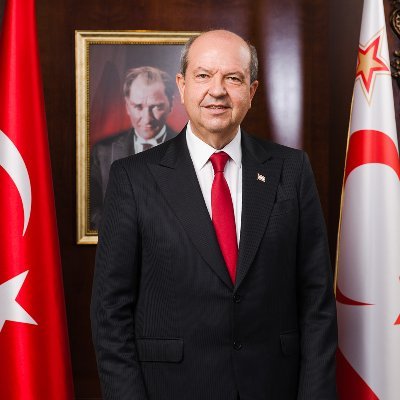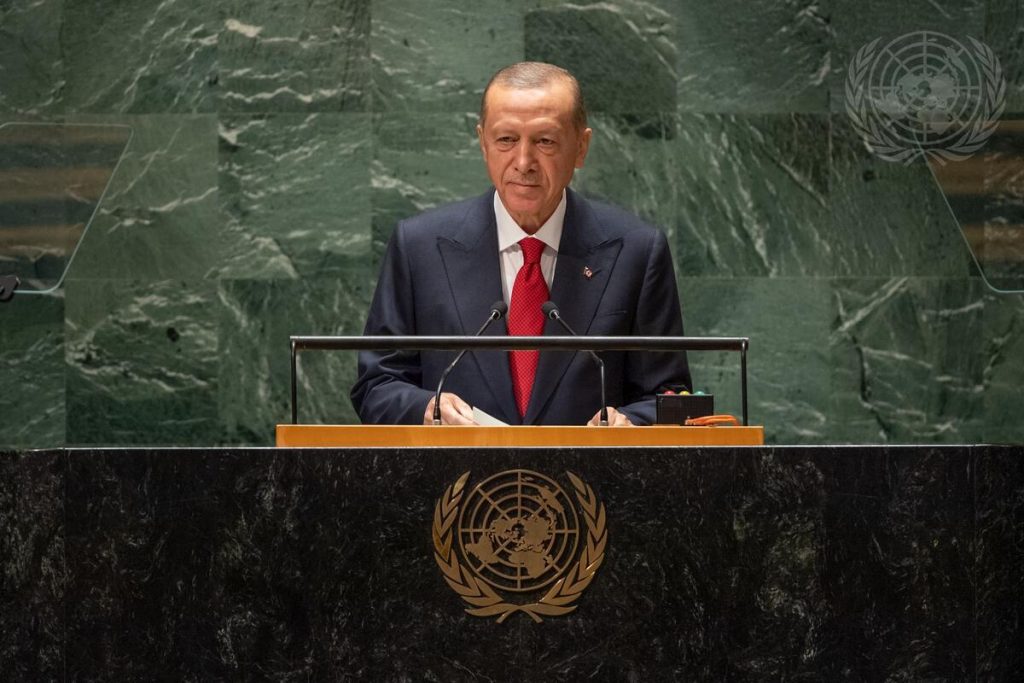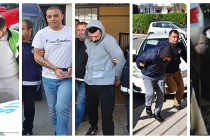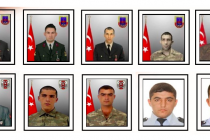Turkiye reaffirmed its commitment to a two-state solution for Cyprus in a speech made by President Recep Tayyip Erdoğan at the United Nations in New York earlier this week.
Referring to the sixtieth anniversary of the Cyprus Problem and the broad acceptance that a federation model settlement was no longer viable, President Erdoğan repeated his historic call of 2022 and invited the world to recognise the Turkish Republic of North Cyprus.
“It is a fact that everyone accepts that this [Cyprus] solution can no longer be realised on the basis of a federation model. We invite the international community to accept this and recognise the independence of the Turkish Republic of North Cyprus and to establish diplomatic, political and economic ties with this country,” said the Turkish leader during his address to world leaders at the 78th session of the UN General Assembly on Tuesday, 19 September.
The Turkish leader also took a swipe at the UN Peacekeeping Force in Cyprus (UNFICYP) for its anti-Turkish bias following the decision to physically block Turkish Cypriots from building a new road linking the buffer zone village of Pile with neighbouring Yiğitler, despite UNFICYP allowing Greek Cypriots to construct many similar roads.
“We also expect the United Nations Peace Force on the island [of Cyprus] to rigorously comply with the impartiality they are obliged to display. We do not want this force, whose reputation has already been damaged, to face a new loss of reputation in Cyprus,” said the Turkish President.
President Erdoğan spoke about the need to reform the UN, so it can more effectively deal with the “security, peace and welfare of the world”.
He called for the creation of a new “global governance architecture that is capable of representing all origins, beliefs and cultures in the world, with its geography and demographics,” while reiterating that the five permanent members of the Security Council were incapable of fairly representing global interests: “We say once again with all our heart: the world is bigger than 5, a more just world is possible.”
The remarks were made as part of a wide-ranging speech that the Turkish leader gave in his 35-minute address to world leaders at the 78th session of the UN General Assembly on Tuesday, 19 September.
Other issues President Erdoğan touched on included the Ukrainian-Russian and Azerbaijan-Armenian conflicts, terrorism and the proxy ways in Syria, Iraq and parts of Africa, the Libyan flooding disaster, climate change, and the “alarming” growth of xenophobia, racism and Islamophobia. He also expressed his support for the Palestinians and Afghans, the latter being in dire need of humanitarian support.
There had been some speculation by pro-federation supporters that President Erdoğan could backtrack on the Cyprus issue following changes to his cabinet, including a new Foreign Minister in Hakan Fidan, and the pressing need for a new Customs Union with the European Union. However, the long-standing Turkish leader couldn’t be clearer in his unwavering support for a two state solution in Cyprus.
His emphatic support for the recognition of the TRNC was warmly received by the Turkish Cypriot leader Ersin Tatar, who shared his gratitude on social media several times over the past few days:
“At the 78th UN General Assembly, President Recep Tayyip Erdoğan invited the international community to establish diplomatic, political and economic ties by recognizing the independence of the TRNC on the 60th anniversary of the Cyprus issue. I would like to thank Mr. President on behalf of myself and the Turkish Cypriot people,” the TRNC President wrote on X, formerly Twitter, sharing a clip of President Erdoğan’s comments on Cyprus.
BM 78. Genel Kurulunda Cumhurbaşkanı Recep Tayyip Erdoğan Kıbrıs meselesinin 60. yıldönümünde uluslararası toplumu KKTC’nin bağımsızlığını tanıyarak diplomatik, siyasi ve ekonomik bağlar kurmaya davet etti. Sayın Cumhurbaşkanı’na şahsım ve Kıbrıs Türk halkı adına teşekkür ederim. pic.twitter.com/LcHlLTHgo0
— Ersin Tatar (@ErsinrTatar) September 19, 2023
The TRNC leader also had the chance to thank President in person in New York, sharing a photo on X on Wednesday of the two men shaking hands with the note:
“In NY [New York], I thanked the President of Turkiye, Mr. Recep Tayyip Erdoğan, on behalf of myself and my people, for his strong support of the TRNC by calling for recognition at the 78th UN General Assembly. This call further strengthens our 2-State solution policy and our honourable struggle.”
The Cyprus Conflict
Cyprus has been divided politically since 1964 and militarily since 1974. The original conflict broke out on 21 December 1963, when Greek Cypriots mounted a bloody coup to seize control of the Republic of Cyprus and throw out their Turkish Cypriot partners in a bid to create turn Cyprus into a Hellenic republic in the Eastern Mediterranean that would unite with mother country Greece (‘Enosis’).
The coup led to a decade of oppression for Turkish Cypriots, with a quarter of them displaced and hundreds killed as they resisted Greek Cypriot rule. Turkish Cypriot leaders quickly formed their own administration to oversee their own affairs, with the UN sending in a peace force in March 1964 to help keep the peace.
A second coup a decade later on 15 July 1974, backed by the military junta in Athens, installed Nicos Sampson as president of Cyprus A mass murderer and leading member of Greek Cypriot far right terror group EOKA, Sampson had threatened to annihilate Turkish Cypriots, prompting the intervention of Turkiye five days later in its capacity as a Guarantor Power of the island.
This intervention led to the current division, resulting in a third of all Greek Cypriots and half of all Turkish Cypriots displaced. Peace has ensued on the island ever since, but no political settlement.
In November 1983, the Turkish Cypriot side unilaterally declared the TRNC. To date, only Turkiye formally recognises the TRNC, although several states, such as Azerbaijan and Pakistan, have informal relations with the country.
The Turkish side and a 2-state solution
Since the outbreak of the conflict the international community has sought to help the two Cypriot sides reunite, but despite fifty years of negotiations, much of it concentrated on forming a new bi-communal, bi-zonal federation, the Greek Cypriot side has baulked at the prospect of again sharing power with Turkish Cypriots. Internationally, it remains the only recognised authority on the island, further removing any incentive to accept a compromise solution.

Ahead of Cyprus’ accession to the European Union in May 2004, the two Cypriot communities voted on a unification deal – the UN-backed Annan Plan. Turkish Cypriots voted in favour, while Greek Cypriots overwhelmingly rejected the deal.
The two sides came to within touching distance of an agreement at the UN-backed Crans Montana talks in Switzerland in 2017 before Greek Cypriots again walked away. The Turkish side stated at the time that Crans Montana was the last chance to reach a federal model settlement.
In 2020, Ersin Tatar was elected president of the TRNC with a mandate to pursue a two-state solution. His cause has been significantly aided after Turkiye threw its weight behind this policy and last year, President Erdoğan became the first Turkish leader to publicly call for the recognition of the TRNC in an historic address to the UN General Assembly.
The sticking problem is the UN Security Council, which remains stubbornly wedded to a united Cyprus, referring to old UN resolutions which call for a single Cypriot state with indivisible sovereignty and political equality with the two sides sharing power as part of a bi-communal, bi-zonal federal model.
The new Greek Cypriot leader Nikos Christodoulides has called for the resumption of talks from the point they collapsed at Crans Montana despite being one of those who had wanted the Greek Cypriot side to walk away from the talks. The Turkish Cypriot side state they any talks require the UN to accept the existence of two states in Cyprus and the sovereign equality and equal international status of the Turkish Cypriot side.
Main image, top, of President Recep Tayyip Erdoğa speaking at the UN General Assembly, 19 Sept. 2023. Photo © UN




